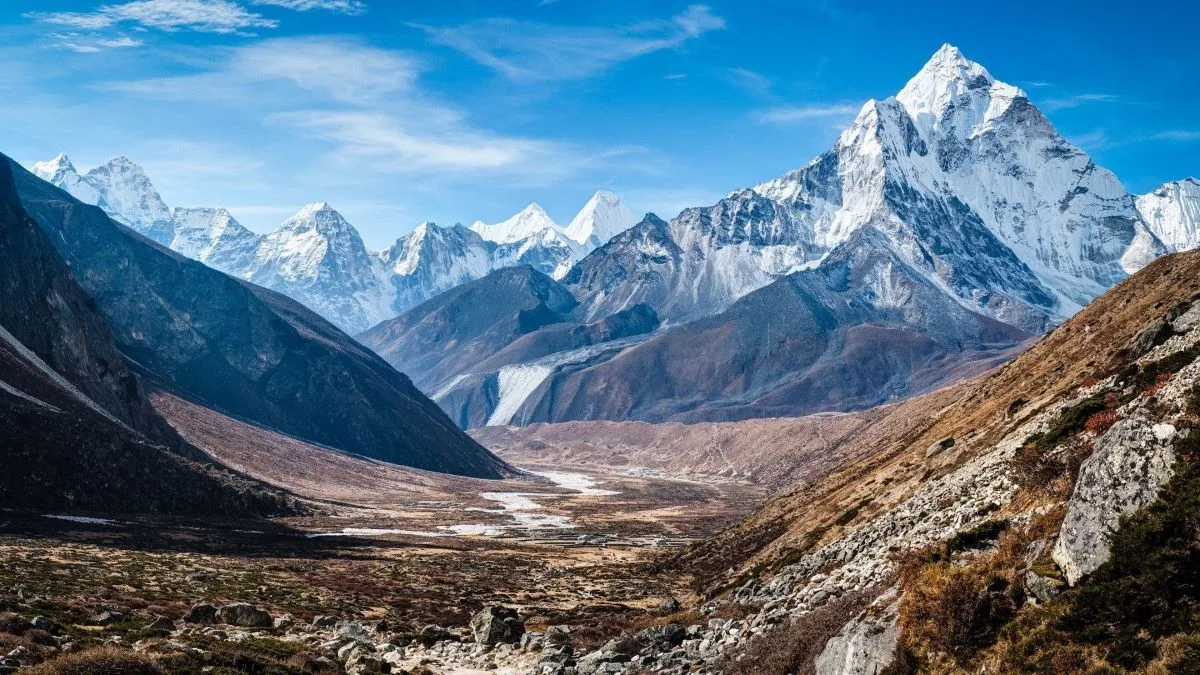Scientists from the Indian Institute of Science (IISc) in Bengaluru, in collaboration with researchers from Niigata University, Japan, have made a remarkable discovery in the Himalayas. They have found evidence of an ancient ocean that existed approximately 600 million years ago, which could hold essential clues about Earth’s past.
A ‘Time Capsule for Paleo Oceans’
Published in the esteemed journal Precambrian Research, the study involved the analysis of water droplets preserved in mineral deposits found in the region. These deposits, rich in calcium and magnesium carbonates, act as a “time capsule for paleo oceans,” as described by Prakash Chandra Arya, the lead author of the study and a Ph.D. student at IISc’s Centre for Earth Sciences (CEaS).
Mystery of Earth’s Ancient Glaciation
The Earth experienced a period of glaciation between 700 and 500 million years ago, known as the Snowball Earth glaciation. This was followed by the Second Great Oxygenation Event, which significantly increased atmospheric oxygen levels and played a crucial role in the evolution of complex life forms. However, the link between these events has remained a mystery due to the lack of well-preserved fossils and the scarcity of evidence from ancient oceans.
Insights from Himalayan Marine Rocks
The discovery of marine rocks in the Himalayas could be a breakthrough in understanding these ancient events. According to the team’s findings, during the Snowball Earth glaciation, sedimentary basins in the Himalayas suffered from a calcium deficiency caused by reduced riverine input. This deficiency led to an increase in magnesium levels, resulting in magnesium deposits that trapped ancient ocean water as they crystallized.
The scarcity of calcium may have created favorable conditions for the growth of slow-growing photosynthetic cyanobacteria. These organisms are thought to have played a crucial role in releasing more oxygen into the atmosphere during the Second Great Oxygenation Event.
The scientists conducted their research across a vast expanse of the western Kumaon Himalayas, spanning from Amritpur to the Milam glacier and Dehradun to the Gangotri glacier region. Rigorous laboratory analysis verified that the deposits indeed originated from ancient ocean water precipitation, ruling out alternative sources such as submarine volcanic activity.
Implications for Climate Modeling & Evolutionary Insights
The implications of this discovery are far-reaching. By shedding light on the chemical and isotopic composition of ancient oceans, the findings can contribute to climate modeling and provide valuable insights into the evolution of oceans and life on Earth.
As the scientific community delves deeper into the implications of this extraordinary discovery, we can anticipate exciting revelations about our planet’s past and its impact on our future. The collaboration between Indian and Japanese scientists has showcased the significance of international research partnerships in unraveling the mysteries of Earth’s history.



